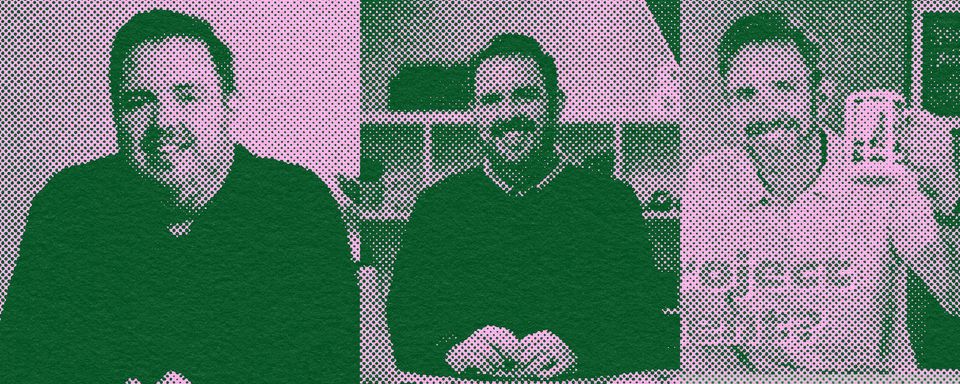How to compliment someone on their weight loss without making it weird

Complimenting someone on their weight loss is tricky—it can bring up a lot of emotions, even when it’s well-intentioned. This is my take on why those comments often feel more complicated than they should and what I’ve learned from being on the receiving end.
That one comment I’ll never forget
It was 2020. Like most people, I was stuck at home, navigating the chaos of a global pandemic. Unlike most people, I decided to use that time to focus on my health. Not just to lose weight, but to feel better. To be better. It worked. Slowly but surely, I shed pounds, revamped my diet, and started feeling like myself again.
But something happened that I wasn’t prepared for: other people noticed.
I was making a lot of video content at the time. If you watch closely (please don’t), you can see my weight loss progress in real-time. People were seeing it, and some decided to comment on it. Most of the feedback was positive—encouraging, even. But one email reply still haunts me:
“Do you have cancer?”
I was stunned. And a little crushed. I was working so hard to get healthy, but this comment made me question everything. It wasn’t long before I stopped making videos altogether. That single comment had that much power.
It took me nearly five years to rebuild my confidence to even think about being on video again. And now I’m on TikTok, who knew?
Here’s the thing: that “cancer” comment cut deep at the time, and all the unsolicited attention on my weight loss made me uncomfortable. Stopping was healthy for me—not just because I needed to recalibrate after that comment but for many other reasons. I realized something important during that time: happiness about my progress didn’t come from anyone else. It always came from me. What others said didn’t matter, and honestly, it never should have. That’s real progress—the kind that’s worth every pound, every mile, and every mindful meal.
Weight loss: the awkward elephant in the room
Conversations about weight are tricky. Society has conditioned us to believe that smaller bodies are better bodies, which means weight loss is often celebrated, no matter the context. And here’s the thing: when you lose weight, people notice. It’s human nature. What’s awkward, though, is how people feel compelled to say something about it.
“You look thin!”“Wow, you’re losing weight!”“Your clothes are so big now!”
As a man, I found these comments wildly uncomfortable. I was used to being aware of my body as a fat person—how could I not be? But the attention I got for losing weight? That was a whole new level of mind fuckery. Why did people care so much? Did they think I’d been silently waiting for validation this whole time? Spoiler alert: In many ways, I had been waiting for this moment, but now that it was here, it was weird.
And let’s get real—would they always see me as the fat guy anyway? I mean, I do. That’s the thing they don’t tell you about losing weight: your brain still plays reruns of your former self long after the transformation montage ends. Who I was then is who I am now. You don’t live 45 years being the fat guy and just forget it after you shed the weight.
But here’s something I’ve contemplated: women at any size deal with this kind of commentary all the time. Imagine being judged for your body not just when you make a big change but constantly for existing in the world. Losing weight gave me an unintentional glimpse into that experience, and let me tell you, I have a newfound respect.
Getting compliments for my body felt like being under a weird, unspoken microscope. Being hyper-aware of my body was exhausting—but it also opened my eyes. It helped me appreciate the work it takes to shut out noise and live for yourself. Of course, not everyone makes that easy, and some people need to be removed from the party because some comments, though well-meaning, can land like a brick—and others are just downright baffling.
What not to say
Let’s get this out of the way: there are absolutely wrong ways to address someone’s weight loss. Intent doesn’t always equal impact, and some comments can sting, even when they’re meant as compliments. Here are a few gems from my personal collection that, let’s just say, didn’t land well:
“Do you have cancer?”Ah, the pièce de résistance of bad comments. Let’s agree this is the worst. Not only does it trivialize serious illnesses, but it also immediately turns a conversation about progress into a moment of discomfort and fear. Please don’t.
“Your clothes look so big now!”Cool, thanks for pointing out my failure to refresh my wardrobe at your pace. Yes, I’m aware I could start a tent rental business with some of my old shirts, but maybe don’t make it sound like I’m wearing a circus tent right now.
“You look so great now!”Oof. This one stings in a way you might not realize. While it’s intended as a compliment, it carries a not-so-subtle implication that you didn’t think I looked great before. It’s like saying, “Now you’re finally acceptable!” Double ouch.
“What’s your secret?”Unless you’re prepared for a deep dive into medical history, dietary changes, and emotional struggles, don’t ask. I might just bend your ear off with the whole story. Spoiler: It’s not a secret. It’s hard work, sacrifice, and plenty of moments when I wished Ben & Jerry weren’t such a reliable duo.
As Roxane Gay so brilliantly puts it in Hunger (highly recommended read!), “Compliments about weight loss often feel like a backhanded admission that you weren’t worthy before.” And she’s absolutely right. Comments like these can unintentionally reinforce harmful ideas that worthiness is tied to size or appearance.
So, when it comes to weight loss, think before you speak. A little thoughtfulness goes a long way toward ensuring your words encourage rather than deflate.
What to say instead
If you genuinely want to compliment someone who’s lost weight—or gone through any noticeable physical change—focus on empowering statements. Here are a few examples that hit the mark:
- “You look strong.”
- “You seem really happy.”
- “You look healthy!”
- “You have great energy.”
- “You look like you’re feeling good!”
- “You’re glowing!”
Notice a theme? These comments are about more than appearance. They reflect health, confidence, and vitality—things that matter far more than the number on a scale.
Be careful, be Thoughtful, be human
Words have power. They can lift someone up or tear them down, often without you even realizing it. When you notice someone’s physical changes, take a beat before you speak. Ask yourself: Am I being kind? Am I being thoughtful? Does this comment contribute to their sense of self-worth?
Because at the end of the day, compliments should make people feel seen, valued, and respected—not scrutinized. So let’s ditch the awkward body talk and embrace a better way to connect: with care, compassion, and a whole lot of humanity.


Member discussion